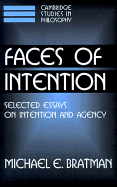1 - Introduction: Planning Agents in a Social World
Published online by Cambridge University Press: 18 December 2009
Summary
We are planning agents. Our purposive activity is typically embedded in multiple, interwoven quilts of partial, future-directed plans of action. We settle in advance on such plans of action, fill them in, adjust them, and follow through with them as time goes by. We thereby support complex forms of organization in our own, temporally extended lives and in our interactions with others; and we do this in ways that are sensitive to the limits on our cognitive resources. These facts are, I believe, an important key to an adequate philosophical treatment of (1) the very idea of intention, (2) basic features of our agency, (3) important forms of shared agency, and (4) important forms of responsible agency.
I discussed planning agency, and its significance to (1) and (2), in my 1987 book, Intention, Plans, and Practical Reason. Since then I have tried to elaborate and to deepen this approach, to extend it to (3) and to (4), and to explore its relations to the work of others. The present volume of previously published work includes eleven essays that were the result of this effort, as well as a pair of earlier critical studies that also seemed useful to include.
At the heart of my theory is a model of our planning agency and the attempt to use it to understand intention. I call this the planning theory of intention. The main idea is to see intentions as elements of stable, partial plans of action concerning present and future conduct.
- Type
- Chapter
- Information
- Faces of IntentionSelected Essays on Intention and Agency, pp. 1 - 12Publisher: Cambridge University PressPrint publication year: 1999
- 1
- Cited by



